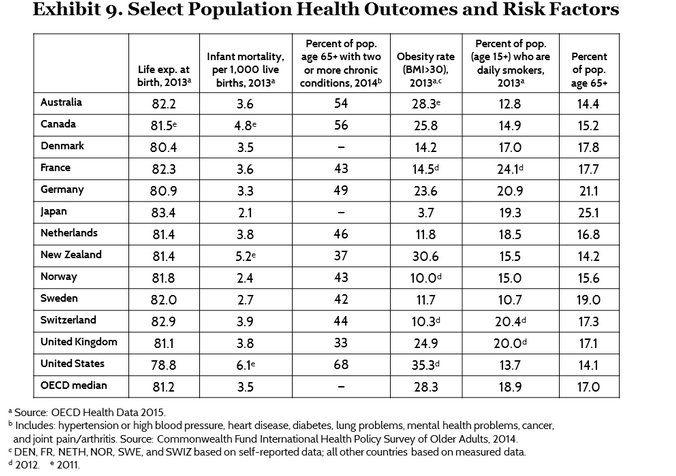The Commonwealth Fund has just released its latest report on health care spending and quality. The findings once again reveal that we spend way more per person on health care per person than other wealthy nations with far poorer outcomes. Interestingly, the U.S. is the only wealthy nation without a universal publicly-funded health care system.
Most likely, you cannot answer most of these 11 questions about our health care system. But, the answers provide good food for thought about new directions we should consider to benefit people in the United States.
- What do we spend on average per person? In 2013, $9,086.
- What did the typical U.S. resident spend out of pocket? $1,074. French residents spent $277.
- What was the average private insurance premium in the U.S.? $3,442, five times more than Canada, which spent the next most, $654.
- How does spending in the U.S. compare with other wealthy countries? The next closest country in spending, Switzerland, spent about 30 percent less, $6325.
- Why do we spend so much on health care? Primarily because we use more medical technology and pay higher prices and not because we see the doctor or visit the hospital more often.
- How does our drug spending compare? In 2010, all other countries had lower prices; prices in the United Kingdom, Canada and Australia were about half of what we paid.
- What portion of our economy is healthcare spending? 17.1 percent.
- What portion of the economy is healthcare spending for the next closest country, France? 11.6 percent.
- What’s the average life expectancy in the U.S.? 78.8 years.
- What’s the average life expectancy in 12 other wealthy nations? At least 2 years more.
- What portion of the U.S. economy goes to housing support, job programs, retirement and disability benefits, food assistance and other social services? Only 9 percent, far less than other wealthy nations and about half of what France, Germany, Sweden and Switzerland spend. Of note, every other wealthy nation spent a higher portion of their GDP on social services than on health care.
Findings are based on 2013 data from the Organization of Economic Cooperation and Development.

Leave a Reply